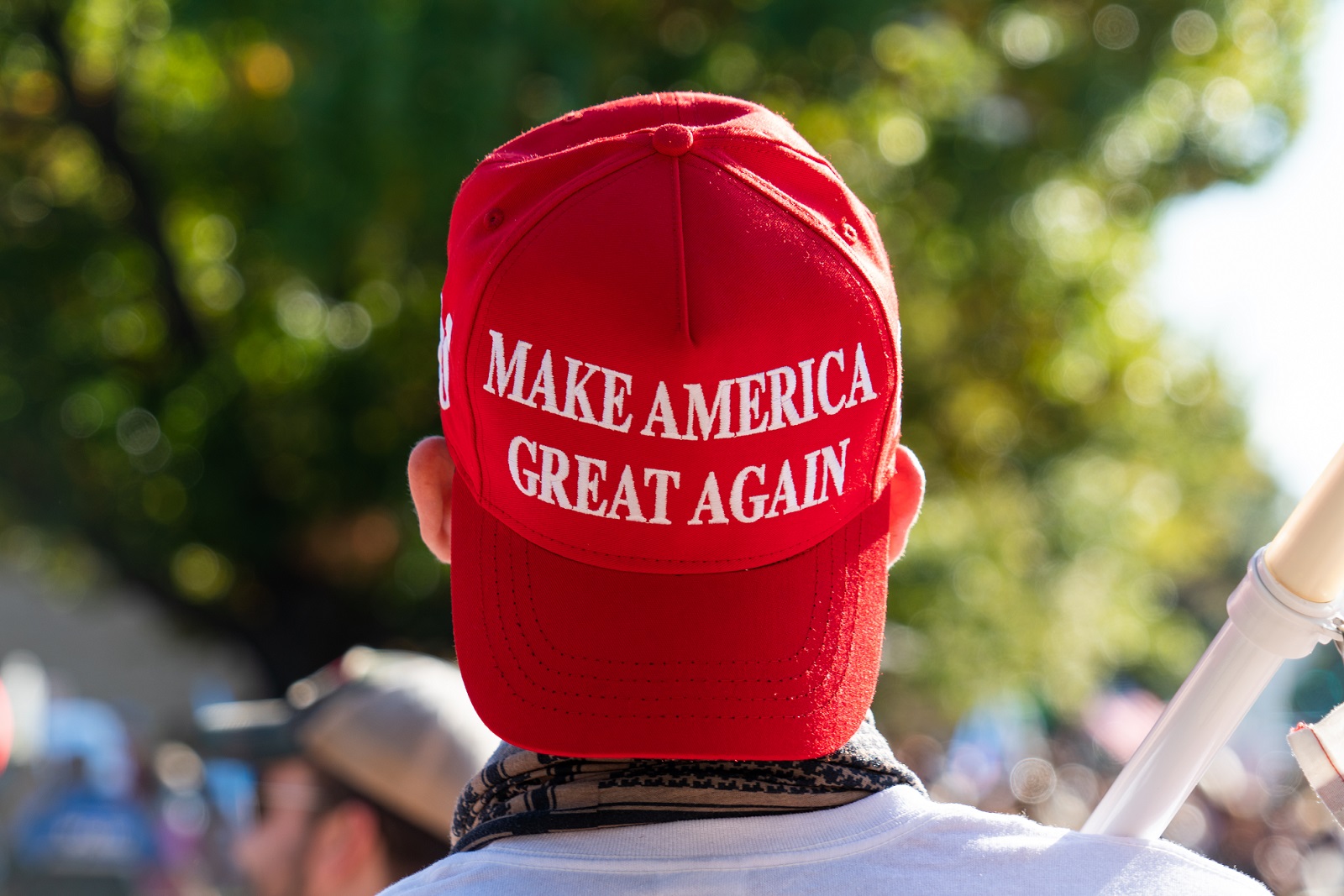Newsletter February 8, 2024
Are Conservative Men Struggling to Get Dates?

To read recent accounts of modern dating, one might think that conservative young men are in trouble. More young women identify as liberal today, and an increasing number are averse to dating people who do not share their politics. On social media, young women report that they readily swipe right on conservatives, and some even do so on self-identified moderates because they are “closet conservatives.” On Twitter/X one woman summed up her dating philosophy as follows: “I’d rather die alone than date a conservative man.” It’s anecdotal, but it certainly does not sound great for conservative singles.
In coastal cities brimming with well-educated, left-leaning singles, the dating market for conservatives is more challenging. During the Trump administration, Politico documented the trouble young Trump officials faced dating in Washington, D.C. But this is an extreme example. Few cities have such a liberal and politically active population of singles as the nation’s capital. In 2016, Trump received only four percent of the vote in Washington, D.C.
Dating is a complicated social activity, and few singles report that they enjoy the process. The influence of politics on dating decisions has probably been overstated, but that’s not to say it doesn’t matter.
Politics as a Personality Trait
The rising salience of politics in dating has a lot to do with Trump’s political ascendence. Trump remains a deeply polarizing political figure, but this is especially true when it comes to gender. The gender vote gap surged in the last two presidential elections, and attitudes about the challenges women face in American society polarized during Trump’s four years in office. The source of these growing divisions shouldn’t be a mystery. Trump’s hostility towards feminism, embrace of hypermasculinity, and past behavior towards women have all contributed to America’s growing gender polarization.
And then there was the way Trump communicated and the frequency with which he did.
John Harris argues in Politico that Trump’s unique contribution to American politics is not his “instinct for casual savagery”—such as his mocking of a disabled reporter—but his method of delivery. Although Trump is known for dropping personal attacks into his stump speeches, many of his most objectionable comments were made via social media posts. Harris notes:
The paradox of modern technology, especially as harnessed by social media, is that it is especially proficient in unleashing primitive dimensions of human character. That suggests a renaissance of insult, indignation and conspiracy theory—the signatures of the politics of contempt—is going to be with us for a long time to come no matter what happens to Trump.
Trump’s style of communicating is personal, frequently offensive, and constant. Trump’s penchant for taking every criticism personally and responding in kind was a hallmark of his presidency. Many of Trump’s political communications are devoid of political information. Is it any wonder then that, for many young people, politics took on a different meaning than disagreements about the budget deficit? A 2020 survey found that nearly two-thirds (64 percent) of young women—and just about as many young men—agreed with the statement, “A person’s political views say a lot about the kind of person they are.”
The antipathy young women feel towards Donald Trump has been well documented, but the strength of the aversion they feel towards him is less remarked upon. The typical way we measure feelings toward political figures is on a scale of very favorable to very unfavorable. Seventy-five percent of unmarried young women have a “very unfavorable” view of Trump. But this survey question does not adequately capture the visceral feelings of disgust many young women have for Trump. A 2016 AP poll found that a majority of young women said the term “sexist” described Trump.
Lost in the many news reports, interviews, and poll questions about dating is that much of the objection young women have to Trump is not political, but personal. We found that a majority (55 percent) of young women would be less likely to date a Trump supporter, but far fewer (39 percent) say the same about the possibility of dating a Republican. The gap is even larger among young women with a college degree: more than three-quarters (76 percent) say they would be less inclined to date a Trump supporter.
But Trump isn’t the only reason modern dating has become more political. It likely has as much to do with the rise of dating apps that make it possible to pre-screen potential partners based on their political beliefs. Online dating allows people to more easily date complete strangers, creating the demand for more detailed screening criteria. Politics has taken greater importance in dating not simply in response to changing dating preferences, but because of the way people meet. Online dating has grown far more common, but it is not the way most young singles want to meet. Young women in particular have shown a much stronger preference for dating people who they were friends with first.
Being a Republican is not going to be the thing that stops young men from finding love. Yes, there are fewer conservative young women than there once were, and politics has become a more salient dating consideration for many young singles. But our own research shows that practical considerations, such as geographic proximity, financial independence, and lifestyle habits, like being a non-smoker, rank much higher in importance than politics.
Being on the same side of a political issue makes things easier, but even disagreement over some of the most contentious issues is not necessarily disqualifying. Young women are overwhelmingly pro-choice—87 percent say abortion should be legal in at least some cases—and many say abortion access is a personal priority, but less than one in four (24 percent) say disagreement over the issue is an absolute dealbreaker. Politics matters, but so do lots of other things.
A lot of singles want to avoid people with extreme political views. Commenting on Reddit, one woman said she was mostly trying to avoid “tiki torch conservatives,” but that men with extremely liberal views might be a problem as well.
All of this may be cold comfort to conservative young men getting stuck in online dating filters. But for young single men searching for romantic partners, the obstacle might be less political than cultural. Young women today are less inclined to view marriage as a goal, face fewer social pressures to marry, and increasingly believe the institution generally benefits men more than women. They also expect far more from their partners than previous generations of women—for single college-educated women, the inability to find someone who meets their expectations is the most common reason they give for being single.
Rebecca Traister, author of All The Single Ladies, interviewed one young woman about to graduate from Northwestern University who viewed marriage as a potentially hazardous detour:
I know it sounds hyperbolic, but I mean it when I say that getting married right now would ruin my life. I want freedom. I want the chance to pick up and move to a new city for a new job or for adventure, without having to worry about a spouse or a family. I need to be able to stay at the office until three in the morning if I have to and not care about putting dinner on the table.
Variations of this perspective abound in online forums and on social media. One social media influencer shared a note he received from a follower about the way many women view relationships with men: women are not choosing between different types of men, but between the peace they have in their lives and the drama men so frequently bring to it.








